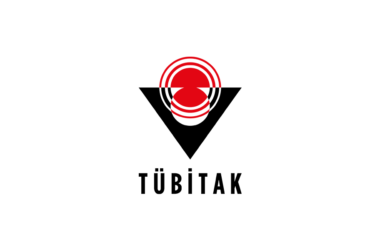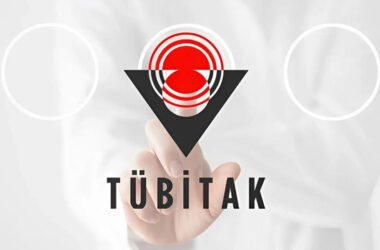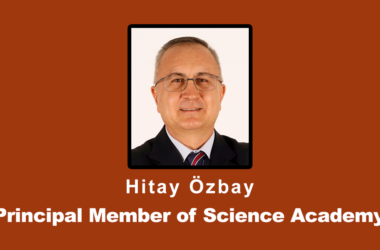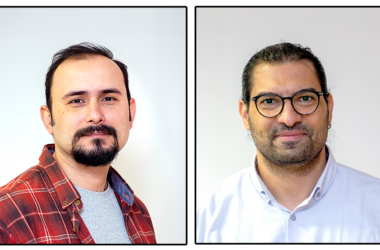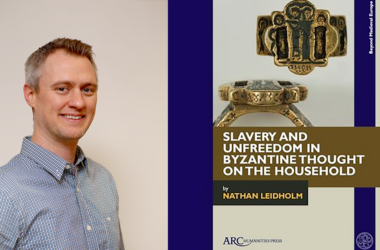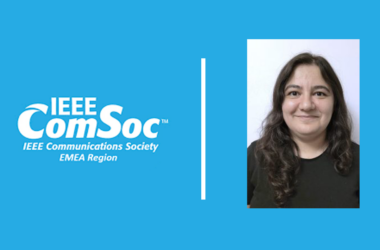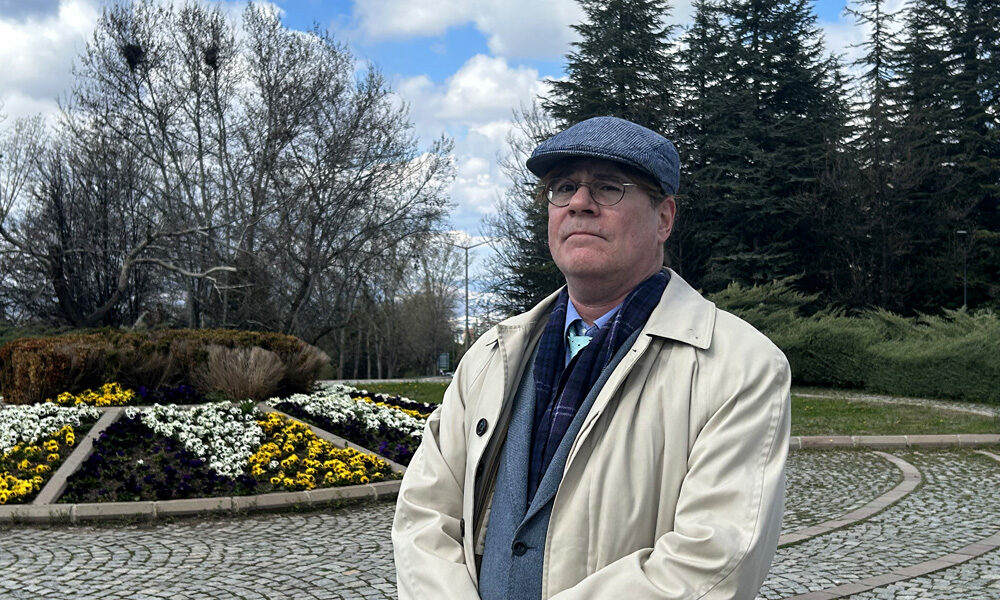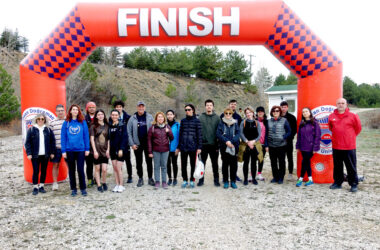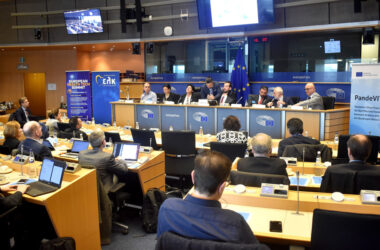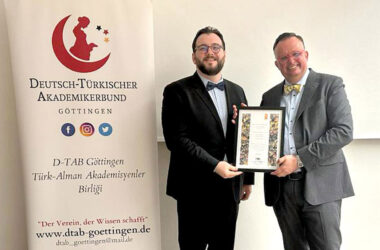BY PELİN SU UZUNCAGİL (AMER/II)
Dr. Craig Ireland teaches at the American Culture and Literature department. He received his BA from Berkeley and PhD from Université de Montréal. Prior to joining Bilkent, Dr. Ireland taught for the philosophy and comparative literature departments at the Université de Montréal. His research and teaching interests include literary, aesthetic and social theory, Western Marxism, Koselleckian Begriffsgeschichte, Luhmanian Systemstheorie and eighteenth- to twentieth-century European and North American intellectual, economic and cultural history.
Why did you choose to pursue an academic career?
When a student at Berkeley, I was mesmerized by the lecturing style of several professors and visiting professors (Lacoue-Labarthe, Jean- Luc Nancy and Hubert Dreyfus). They maintained a sense of humour even as they made the complex work of Adorno, Hegel, the Frühromantiker and Heidegger accessible to first-year undergraduates untrained in epistemology, hermeneutics or German idealism. This, I think, is what cemented my decision to pursue a pedagogically oriented career.
Why/how did you choose Bilkent? What do you like the most about being at Bilkent?
I initially chose Bilkent for political reasons. By the time I completed my postdoctoral research, the US under the Bush regime had illegally invaded Iraq and was wreaking havoc throughout the region. I was so incensed that I made up my mind to seek a position in a country not fully under the sway of US foreign policy. Of the various offers I received from such countries, I chose the offer from Bilkent – largely because I admired the resilience of the Turkish parliament in the face of US bullying. I wanted to get to know Turkey better.
What I most like about Bilkent, though, are the students. From my experience so far, Bilkent students (with a few exceptions, of course) tend to be less encumbered by “group think” than their Canadian counterparts. They generally do not blindly follow, lemming-like, the latest virtue-signaling fad du jour, but instead think for themselves. They also have a great sense of humour.
What projects are you working on currently?
I was given the chance a few years ago to opt for a “teaching track” itinerary. This means that, in exchange for a slightly heavier teaching load, I can freely publish on my own terms. Instead of adhering to the strictures of academic publishing and reaching only a small coterie of readers, I can now publish or broadcast in nonacademic venues that reach a broader audience. I thus have quite a few ongoing projects (all of which are under a pseudonym for now), such as a Vlog/podcast (with like-minded colleagues from the University of Toronto and l’Université de Lausanne) that focuses on geo-political analysis, economic forecasts (medium to long term) and political philosophy. I am also continuing my work on a novel and a second academic (and coauthored) book.
What’s your best work?
I’d say this would be my first article in Cultural Critique (Martin Jay insisted that I publish it), which somewhat presciently addresses the dangers besetting certain strands of cultural/subaltern studies. This work’s somber prognosis has, sadly, come to pass. And it continues to be cited even after 20 years.
What excites you about your work? What’s the coolest thing about your work?
As I said earlier, the coolest thing for me is the students. What is there not to like when your students (with a few exceptions) tend to agree with George Carlin’s quip that “political correctness is fascism pretending to be manners?”
Could you share a turning point or defining moment in your career?
The turning point for me was when I was awarded a prestigious and financially generous SSHRCC (Social Sciences and Humanities Research Council of Canada) postdoctoral fellowship for two years. This helped me finish my first book, published a year later by McGill-Queen’s University Press.
What has been the most exciting moment of your career so far?
The most exciting moment for me is best seen as a series of exciting moments. And these moments are when the best students from our department gain acceptance at top universities for graduate study. So far, I have seen such students accepted (with full scholarships) at schools ranging from Columbia University to the Université de Genève.
What’s one piece of information from your field that you think everyone should know?
The central issue I hope my work (publications, podcasts and teaching) drives home is this: The best antidote to ideological hoodwinking – from the phrenology and Social Darwinism of yesteryear to the identity politics and woke cults of today – is to historicize (and, in so doing, denaturalize) that which parades itself as universal, natural and beyond critique. Also, it helps to ask: “cui bono?”
When and where do you do your best thinking?
I am at my most lucid in the evening (20:00 to 22:00), at my home desk, when my daughter is (finally) asleep.
What distracts you?
I am not sure how to answer this question, as the term “distract” is rather ambiguous.
What are you most curious about?
I am most curious about mob mentality, the dynamic behind “group think,” and how these lead to a pathological intolerance for dissident ideas. To this end, I have devoted years of research on the Terreur phase of the French Revolution, on the fall of the Weimar Republic and the rise of the NSDAP, on Stalinism, on McCarthyism, on (more recently) TDS (Trump Derangement Syndrome), on the more strident strains of what some call the “Cult of Woke” or “Cancel Culture” and on the Russophobia currently rampant in the West.
What’s the most common misconception about your work?
Even though my last strictly academic publication was in 2017, my work (surprisingly) still gets cited every year. I check out these citations and, to date, I have yet to see any misinterpretations of my published work. On the other hand, when it comes to my teaching, a few students – due no doubt to a tenuous grasp of English – occasionally seem to completely misunderstand my lectures or even the notion of Devil’s advocate (which I often play). But this is rare.
What do you like to do when you’re not working?
Watch documentaries about the decline and fall of civilizations.
Which books have influenced you the most, and why?
The following books have most influenced not only my research priorities, but also my take on life:
Marx, Capital (all 3 vols), Proust, A la Recherche du Temps Perdu, Heidegger, Sein und Zeit, Edmund Burke, Reflections on the Revolution in France, Simone Weil, Pesanteur et Grace, André Breton, Nadja, Norbert Elias, Über den Prozeß der Zivilisation., Adorno and Horkheimer, Dialektik der Aufklärung.
What would you be if you had not chosen an academic career?
Psychiatrist.
What’s the secret to leading a happy life?
Not to take any particular cause (political or otherwise) so seriously as to lose your humanity and capacity for empathy.

